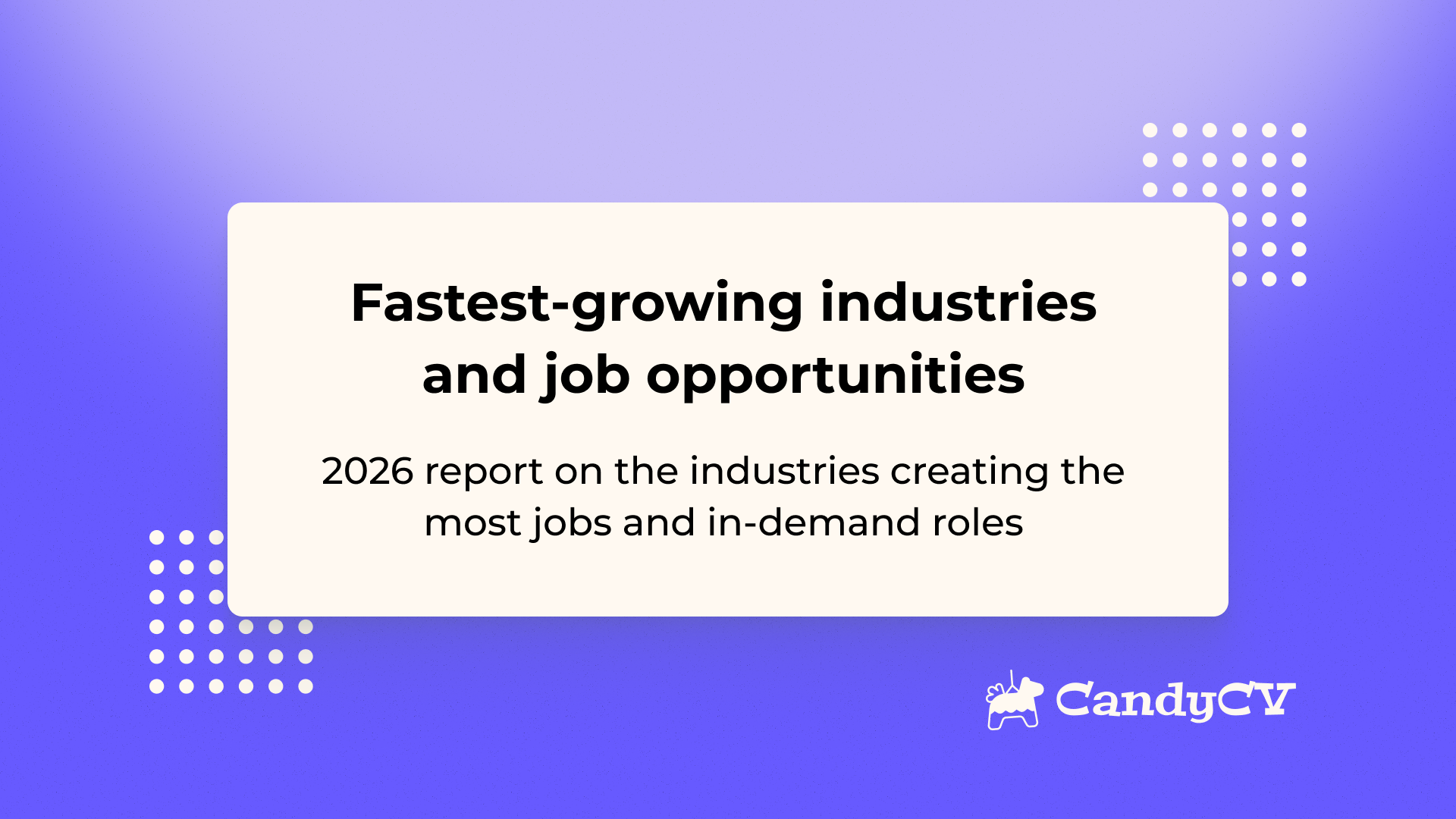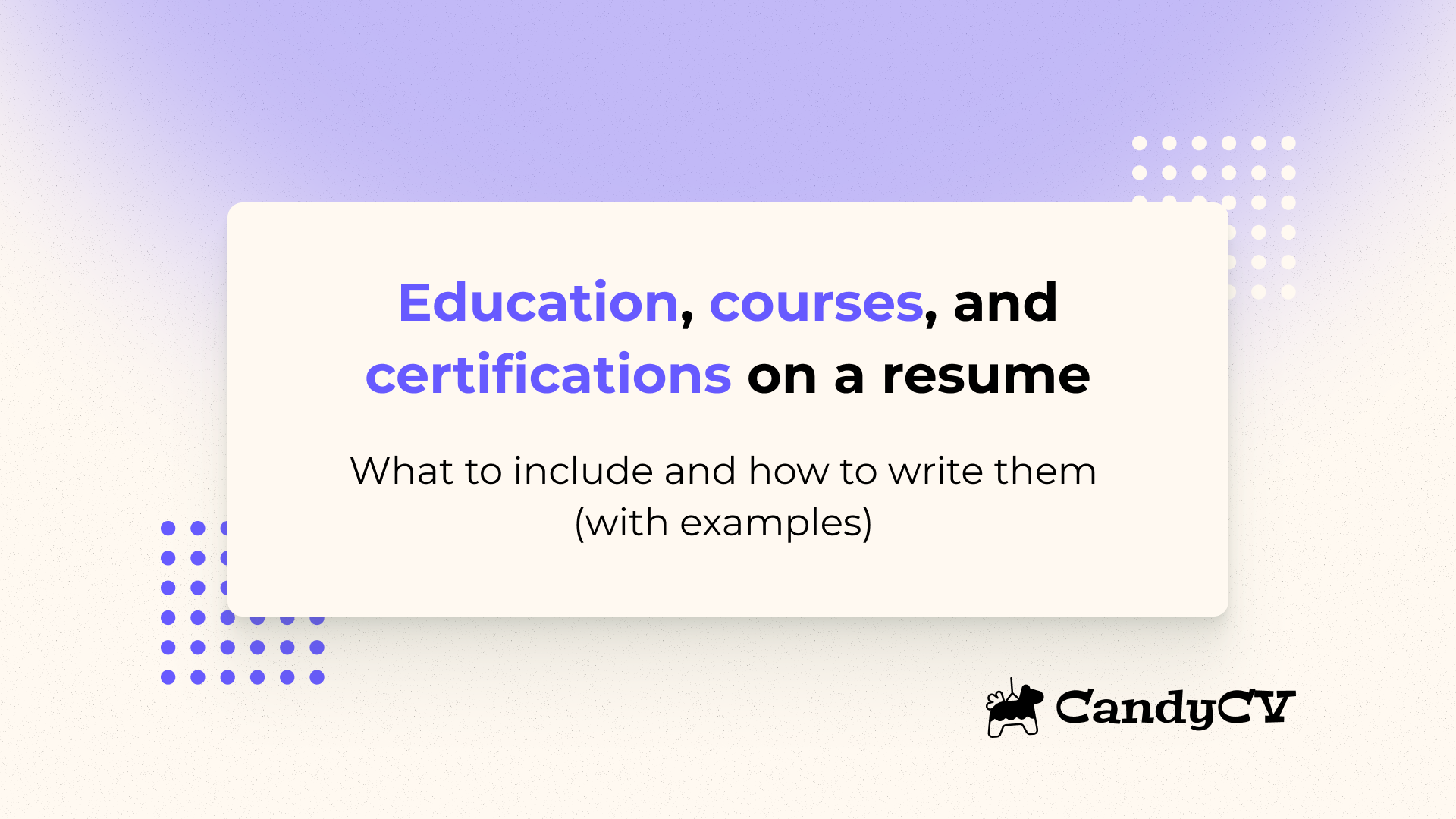
How to list Education and Certifications on your resume (with examples)
The education section is one of the most neglected parts of many resumes. And it’s a shame, because doing it well is easy once you stop thinking the goal is “prove I went to school.”
Hiring teams are looking for signals of continuous learning, adaptability, and role fit, not a trophy shelf of credentials. Your education (formal or not) can show knowledge, skills, and commitment to growth.
And if you’re early-career or changing paths, your education might be your strongest asset as long as you present it like evidence, not like a list.
In this article (updated for 2026), you’ll learn:
- What counts as education on a resume.
- How to write your education section so it supports your target role.
- What to include for courses and certifications (and where to place them).
- How to include self-directed learning with realistic examples.
- What to do if you have no formal education.
- What resume template best highlights education (especially when you don’t have much work experience yet).
What counts as “education” on a resume
Think of education as: anything you learned that helps a hiring team understand your profile in the context of a specific job.
Here are the types worth considering:
- Formal education: associate degree, bachelor’s, master’s, doctorate/PhD, community college programs, trade school (depending on your field).
- Courses and continuing education: short programs, bootcamps, workshops, employer training, online courses.
- Certifications: credentials issued by a recognized organization (sometimes verifiable, sometimes expiring).
- Optional: self-directed learning: only if you can translate it into applied work and it’s relevant to the job.
How to list education on a resume (five rules)
Rule 1: Use reverse chronological order
Start with the most recent (and most relevant) credential first.
Rule 2: Don’t list your entire academic history
Once you have a degree or advanced training, your earlier education usually stops adding value. That often means you don’t need to list high school once you have college-level education (unless it’s your highest level).
Rule 3: Prioritize what supports your target role
If your background is broad, select what makes the “why you” case strongest for the job you want now.
Rule 4: Include in-progress or incomplete education
Don’t hide it. Just write it clearly (more on formats below).
Rule 5: Add location only when it adds context
School location can help if the institution isn’t widely known, if you’re applying in a different region/country, or if it clarifies licensing context. Otherwise, keep it simple.
How to format formal education (with examples)
Create an Education section and use a consistent format like:
Degree · School · Dates (or “In progress”) · Location (optional)
Examples:
B.S. in Computer Science · [University] · 2018–2022
M.S. in Digital Marketing · [University] · In progress (expected [Month YYYY])
Now the part most people miss: don’t let this become a sterile list of titles. If education is a key signal for you (entry-level, career switcher, limited work experience), add just enough context to show readiness, such as:
- Relevant coursework (only what maps to the target role).
- Skills developed.
- Projects where you applied those skills.
If you’re early-career, this can matter more than you think because it may be the clearest proof you can do the work.
Harvard resume template: best resume format to highlight education

High school, GED, associate degree, and trade programs: what to include on a resume (with examples)
If you’re unsure whether a credential belongs on your resume, use one question: does this help someone choose me for this job? If not, it’s noise.
Guidelines that usually hold up:
- If your highest level is high school diploma or GED: include it.
- If you have college-level education (associate/bachelor’s/master’s/doctorate), high school usually doesn’t add value and takes space you’ll need.
Examples:
High school diploma · [School] · [Year]
GED · [State/Testing Center] · [Year] (if you list it)
Associate degree in Web Development · [College] · [Years]
Certificate program in [Field] · [Institution] · [Year or expected date]
How to list courses on a resume (continuing education)
Courses can be a strong signal of continuous learning and adaptation, especially in fast-changing fields. They can also reinforce key skills for your target role.
Which courses to include
Don’t list everything you’ve ever taken. Include courses that are:
- Recent (typically within the last 3–5 years, depending on the field).
- Relevant to the role you’re targeting.
- Skill-validating (tools like Excel/SQL, methods like Scrum/OKRs, language proficiency, etc).
Where to put courses on a resume
It depends on volume and importance:
- If you have 1-3 highly relevant courses, you can include them under Education.
- If you have several and want them to scan fast, create a separate section like Relevant coursework or Professional development.
- If they’re actual certifications that matter in your field, they usually deserve a dedicated Certifications section.
How to write courses so they don’t look like title collecting
Avoid the classic name-dropping list of courses:
Excel course.
SQL course.
Power BI course.
…
That doesn’t tell anyone what you can do. Use this instead:
Course · Provider · Date · (optional: focus / applied work)
Examples:
Advanced Excel · [Provider] · 2024 (dashboards, pivot tables, reporting)
SQL for analytics · [Provider] · 2024 (joins, aggregations, query design)
How to list certifications on a resume
Recognized certifications and micro-credentials can be valuable because they show you stay current and they often contain keywords recruiters actually search for.
How to format certifications (and handle expiration)
A good certification entry does two things:
- It’s understood in two seconds.
- It looks real (verifiable, issued by a known org, or clearly scoped).
Recommended format:
Certification name · Issuing organization · Date earned · Expiration (if applicable)
Examples:
Project Management Professional (PMP) · Project Management Institute · Earned [Month YYYY] · Expires [Month YYYY] (if applicable)
data to verify: expiration details depend on the credential’s renewal rules
If you’re still completing it:
Certified ScrumMaster (CSM) · Scrum Alliance · In progress (expected [Month YYYY])
Where to put certifications on a resume for maximum visibility
- If certifications matter in your field, create a dedicated Certifications section so they’re immediately visible.
- If a certification is a hard requirement, consider mentioning it in your resume summary as well (without repeating the entire line).
Certifications you should usually leave off
- Very old certifications that no longer reflect your current level.
- Credentials from unknown providers that don’t add credibility for the target role.
- Irrelevant certifications (even if you personally enjoyed them).
- Expired certifications (unless you’re actively renewing and you state that clearly).
How to include self-taught learning on a resume
A lot of in-demand skills don’t come with a diploma. Content creation, SEO basics, spreadsheet analysis, automation, even coding foundations; many people learn them through self-study.
That can be gold. But only if you can translate it into applied work.
Create a self-directed learning section (only if you can show application)
If you’re listing multiple self-taught areas, a dedicated section can work. The key is to:
- Name specific skills (not vague interests).
- Mention credible learning sources (platforms, books, courses, communities).
- Show where you applied it (projects, results, outputs).
Example (use your real proof, not inflated claims):
Content creation (self-directed learning) Scriptwriting, filming, and editing using CapCut and DaVinci Resolve. Applied through a personal TikTok channel with consistent publishing and documented growth metrics.
SEO and copywriting (practical learning) Built skills through reputable resources and applied them to optimize a personal site; tracked outcomes in analytics and documented improvements.
Online community management (practical learning) Learned moderation and community ops through structured resources; applied them while supporting an active Discord community with clear rules and routines.
Notice what’s happening: you’re not asking to be believed. You’re showing work.
Turn learning into projects (often a better move)
Knowledge is valuable when it’s applied. If you used your learning in personal projects, freelance work, volunteering, or real-world experiments, it often fits better as Projects than as “Education.”
For example:
Personal project Content creator (TikTok, Instagram) · 2023 - Present
- Planned and produced weekly videos (script → filming → editing).
- Built a repeatable publishing system and tracked performance over time.
If what you did is basically work (even self-directed), it often belongs in projects or experience.
This guide helps: how to write your work experience section (with examples).
What to put on your resume if you have no formal education (four strategies that work)
Not having a college degree doesn’t automatically take you out of the game. In many roles, what matters most is what you can do and whether you can prove it.
Here are practical ways to build credibility:
-
Projects section
Designer? Build a portfolio. Developer? Ship projects and document them. Marketing? Create a campaign plan, run a small experiment, and show the results.
-
Portfolio, work samples, and skill tests
In technical or creative roles, work samples often carry more weight than credentials. Include links and keep the explanation tight: what you built, what you used, what changed.
-
Recognized certifications
In some fields, a respected certification can unlock interviews. Only list what your target roles actually value and don’t pretend a certificate replaces competence.
-
Accessible education pathways
Community college programs, certificate programs, apprenticeships, and bootcamps can help if they genuinely build job-ready skills and you can show outputs. Don’t oversell them. Show the work.
Education is more powerful than you think
Whether you’re starting out, switching industries, or leveling up, education and certifications can change the outcome of your job search as long as you present them well.
Hiring teams are looking for more than titles, they’re looking for skills. They want people who learn fast, adapt and stay current. Relevant courses, strong projects, and applied self-learning can be the difference between “maybe” and “let’s interview.”
Try CandyCV to build a resume that shows real value, even when you don’t have much work experience yet.
FAQs about education, courses and certifications on a resume
What counts as education on a resume?
Education can include formal degrees, relevant courses/continuing education, and certifications. Self-directed learning can also belong if you can show applied work.
Where should the education section go on a resume?
If you’re entry-level, a student, or changing careers, education can go near the top because it’s a stronger signal than work experience. If you’re experienced, it usually goes after work experience unless a credential is central to the role.
What should you put in the education section of a resume?
Include what signals readiness for the job: your most relevant credential, recent role-aligned courses and certifications, and in-progress education if it supports your target role.
Where should courses go on a resume?
If you have a few key courses, list them under Education. If you have many, use a separate section like Professional development or Relevant coursework.
Should certifications go under education or in a separate section?
If certifications are important in your field, put them in a dedicated Certifications section so they’re easy to spot. If you only have one minor credential, it can sit under Education, but keep it scannable.
What’s the difference between courses and certifications?
Courses are learning programs. Certifications are credentials issued by an organization (often verifiable and sometimes requiring renewal).
Do online courses belong on a resume?
Yes, as long as they’re relevant to your target role, recent, and help validate a specific skill. Write them with the provider and a brief focus so they don’t look like random title collecting.
How do you list a certification that’s in progress?
Write “In progress” and add an expected completion date only if you can realistically stand behind it (otherwise use “in progress” without a date).
Should you list high school if you have a college degree?
Usually no. List high school/GED mainly when it’s your highest level (or when a job explicitly asks for it).
When is it worth adding GPA to a resume?
Include GPA only if it’s a strong signal and relevant (often for very recent grads, competitive internships, or scholarship-style programs). If it doesn’t help, it’s just taking space.
We're two product builders who care about quality, taste and doing things right. We want you to get that job you want, plain and simple. That's why we are building CandyCV to help you create a great resume and land a job for free. If you give us a try (and feedback!), we'll be forever grateful 😊
Alba Hornero
Co-founder and Employability Expert
As CandyCV’s co-founder and a former product lead in HR tech, I’ve built ATS tools, optimized hiring processes, and interviewed hundreds of recruiters. I personally write every post with the intention to provide real, high-impact job search advice that truly helps you land your next role.
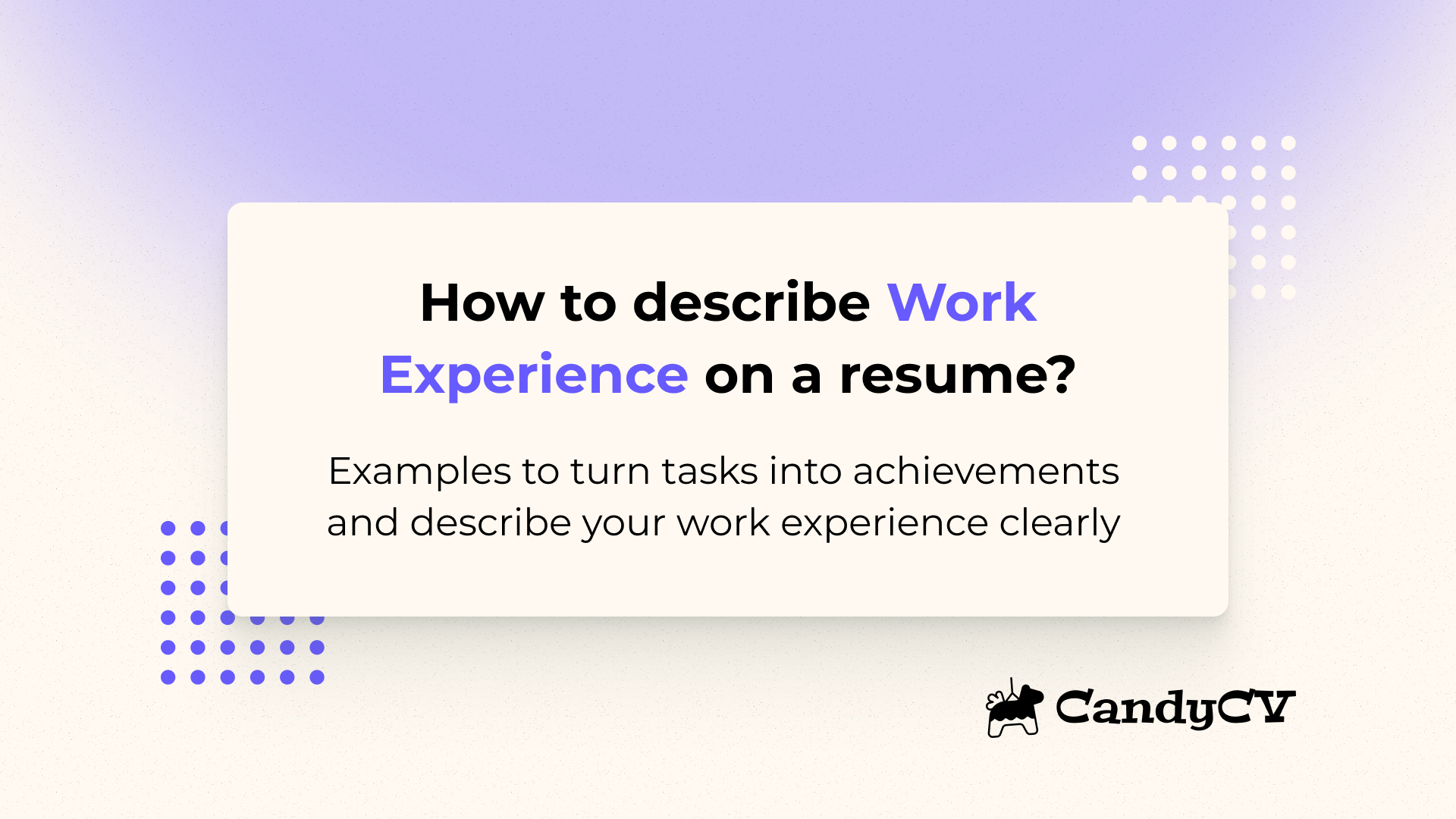
How to describe work experience on a resume: tips and examples
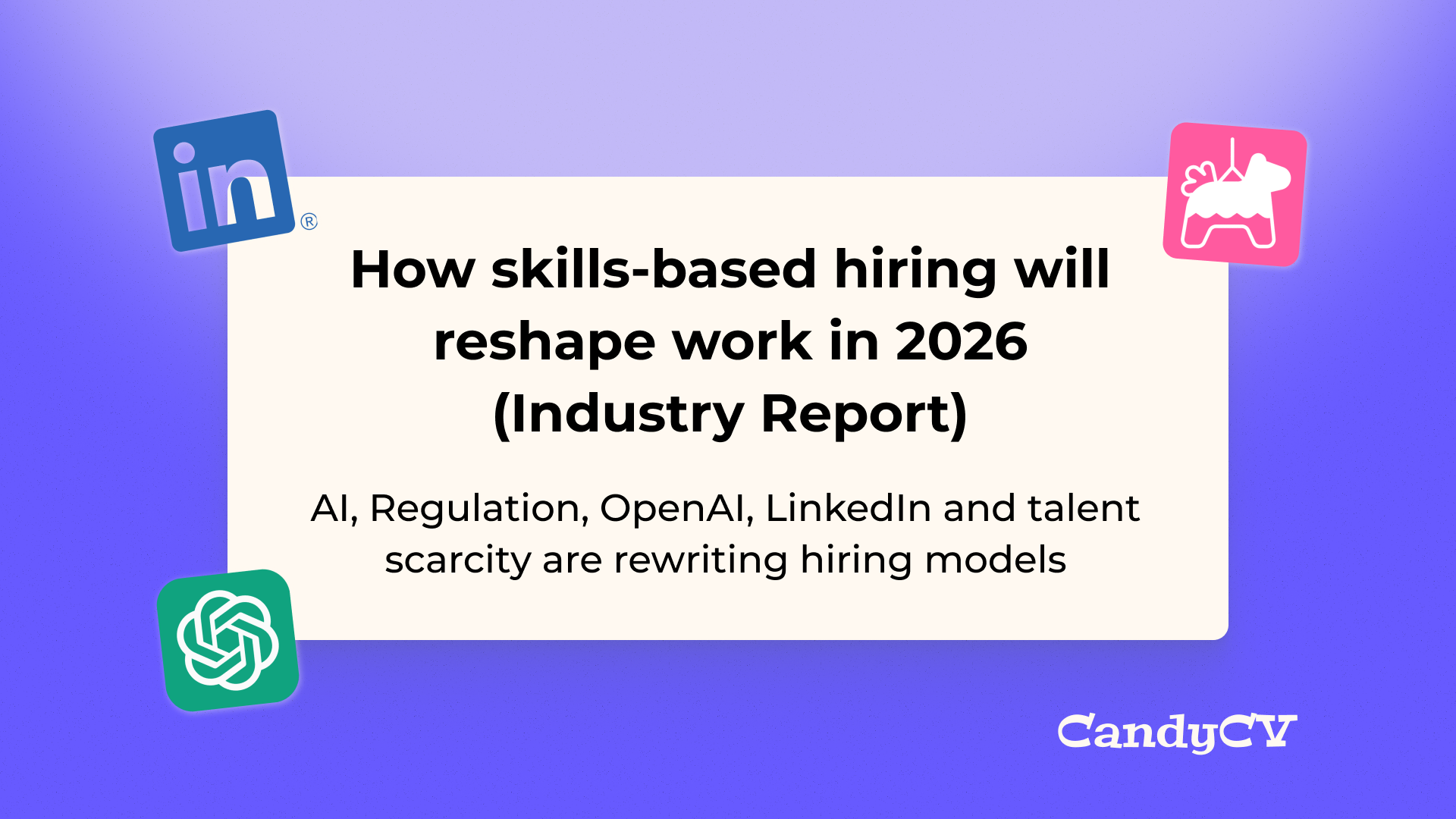
The skills-based hiring report: what it is and how it will reshape work in 2026
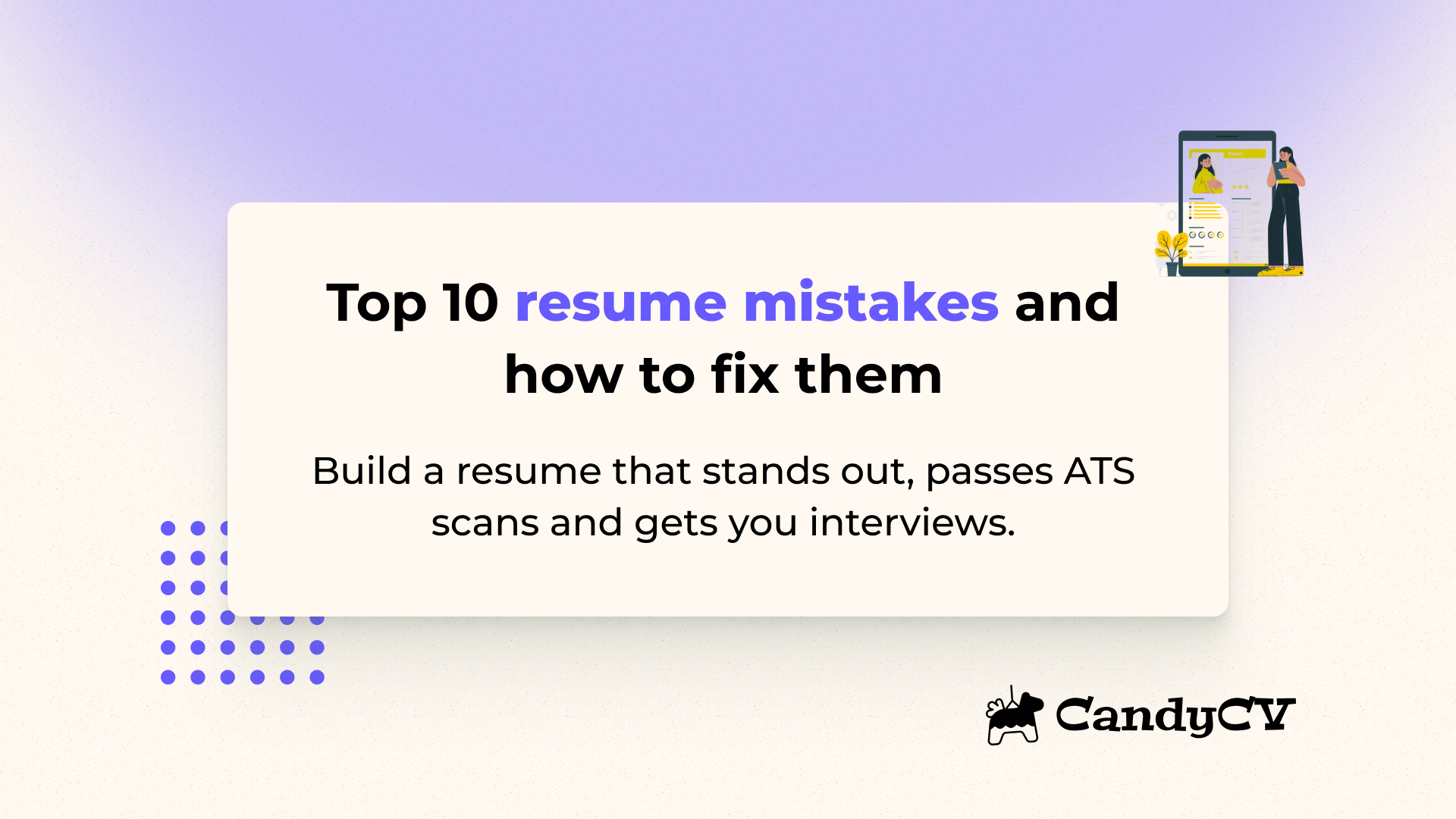
Top 10 common resume mistakes to avoid and how to fix them
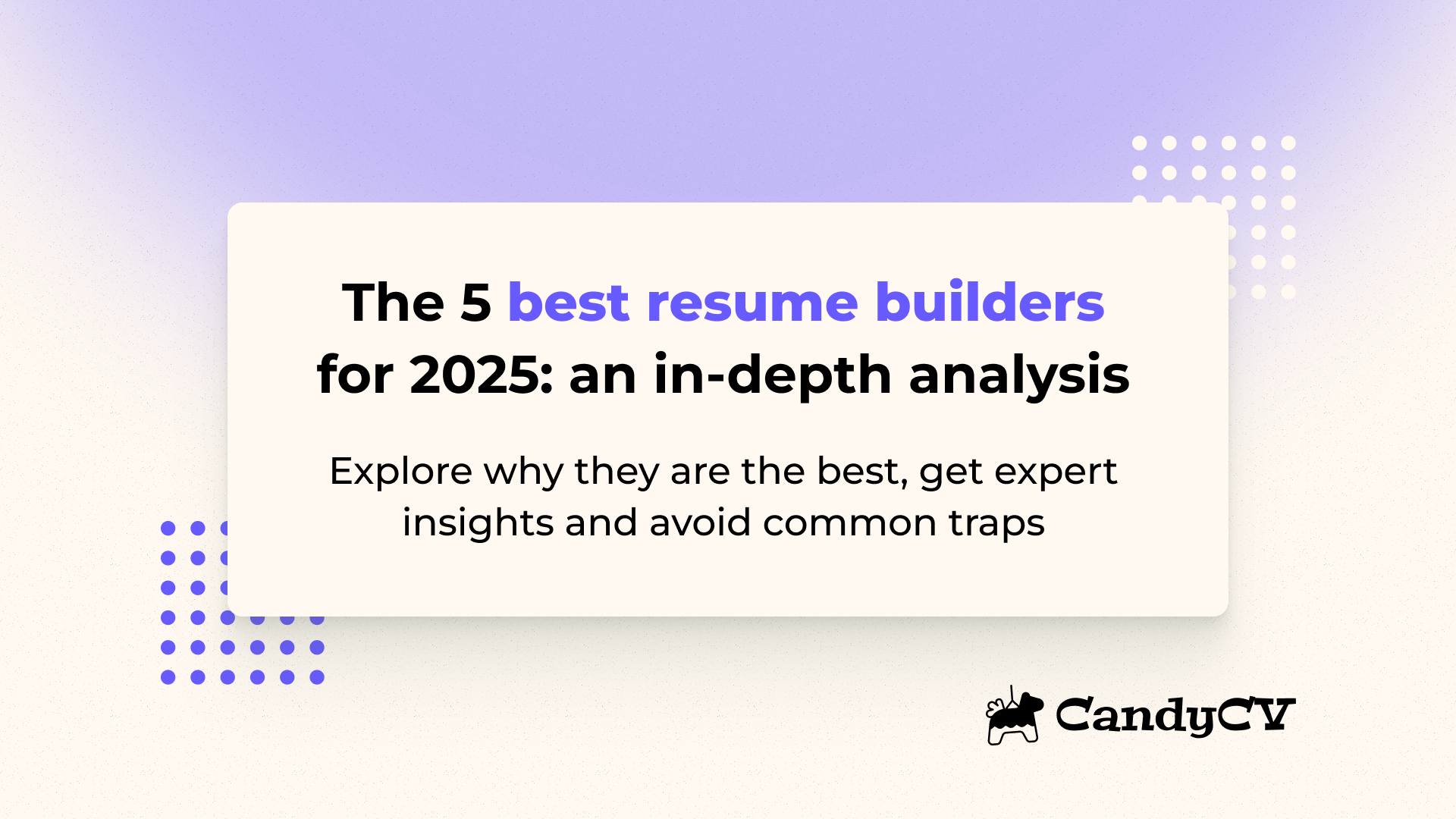
Top 5 resume builders: comparison and how to choose the best one
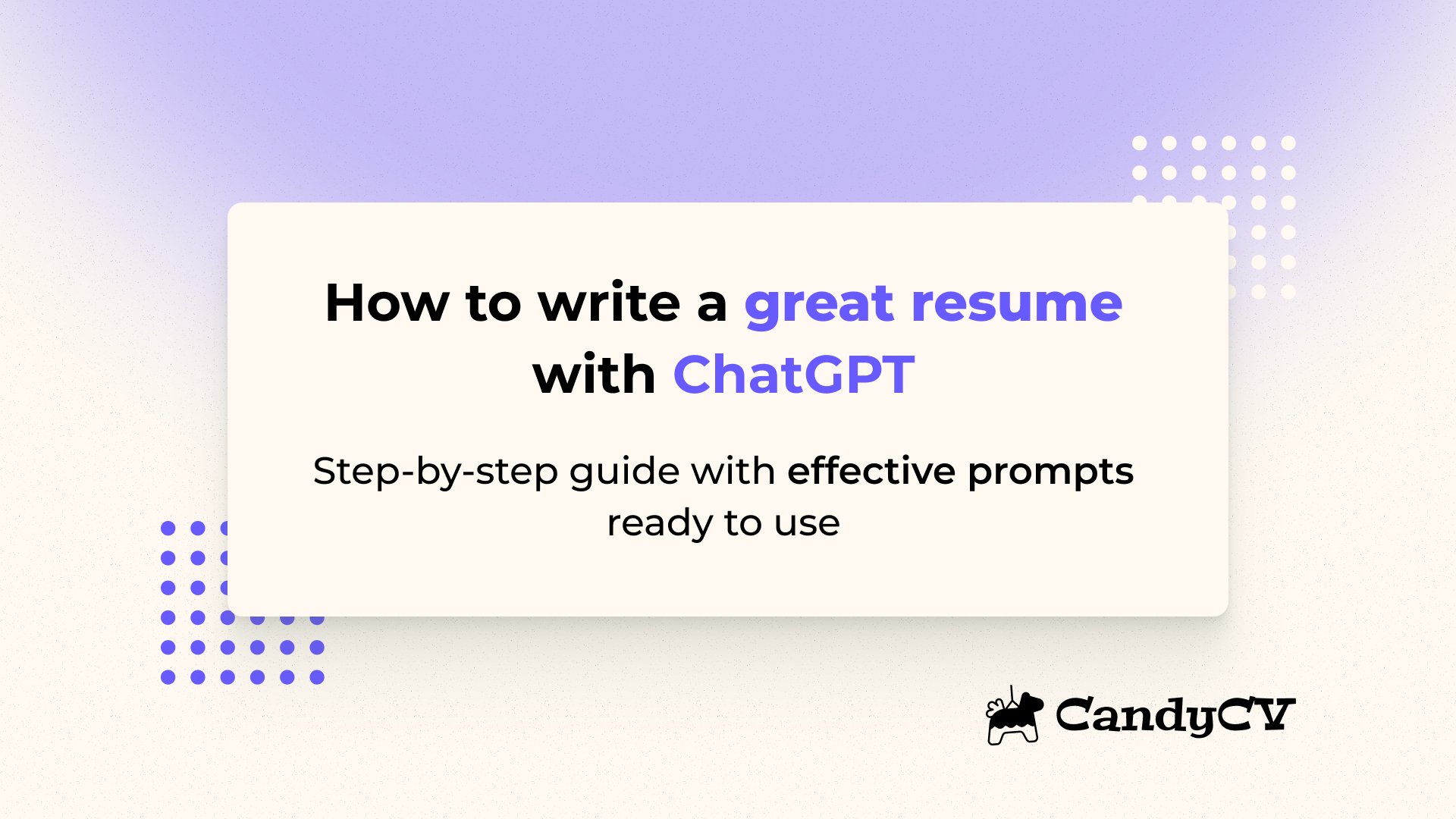
How to create a resume with ChatGPT from scratch without sounding generic (5 steps + prompts)
